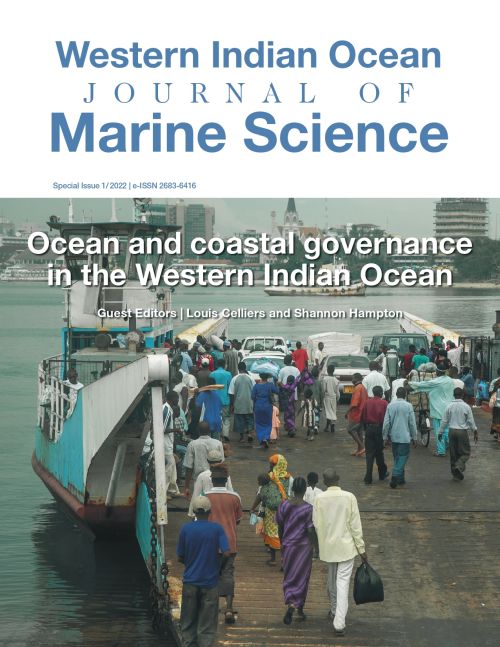Main Article Content
Recent rise in exploitation of Tanzanian octopuses: a policy and management challenge
Abstract
The artisanal octopus fishery is important for the coastal communities in Tanzania. In this work the octopi landing data from the United Nations Food and Agriculture Organization (FAO), Ministry of Livestock and Fishery Development (MLFD) and trade statistics from Comtrade of the United Nations were analysed. The FAO dataset show that from 1980 to 2017 annual octopus landings stayed below 2000 tons until 2018 when the catch increased to 2864 tons, and doubled to 5,687 tons in 2019. FAO datasets show large catches in 1995, 2003 and 2019, with 2019 recording the largest catch. For both Comtrade and MLFD export statistics, approximately 5,818 and 2,254 tons of octopus were exported globally from 2018 to 2020 with an equivalent value of approximately 13 and 19 million US$ respectively. Portugal was the largest importer of Tanzanian octopi, followed by Turkey, Italy, Spain, Netherlands, Israel, France and Panama. The current management interventions relating to octopi are presented, including the challenges needed to be addressed for sustainability of the octopi fishery. Voluntary octopi closures indicated some signs of success, but an in-depth assessment of the associated effects is required. The study recommends a need for verification mechanisms to ensure consistency of FAO and MLFD statistics, stock assessments, in-situ research on recruitment patterns of octopi, as well as innovation and research in designing sustainable fishing gear to support development of policies for sustainability.




